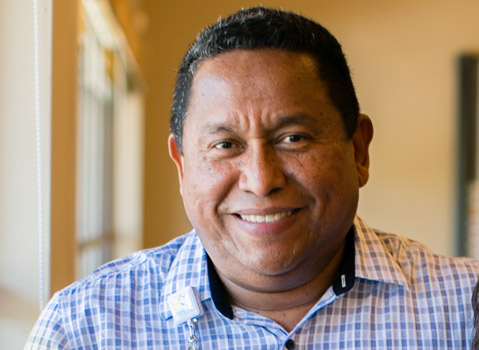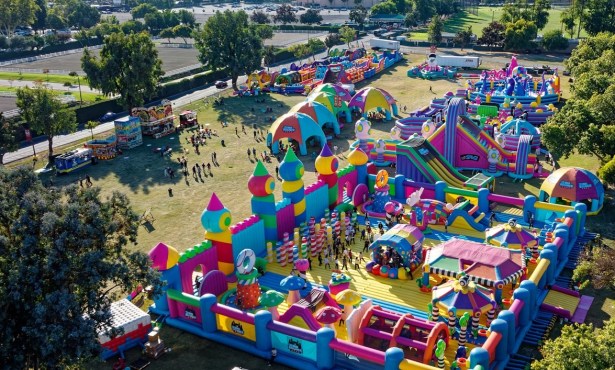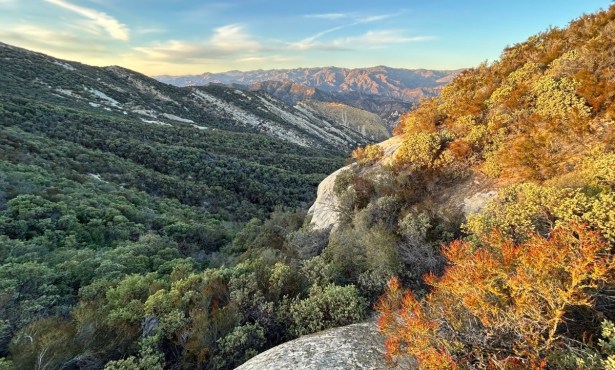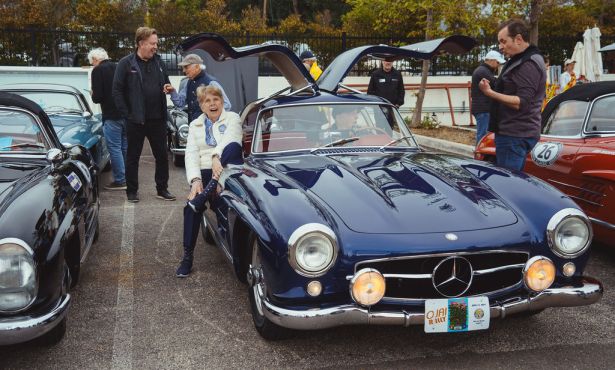How Reginaldo Salcedo Honors the Path to Death
Colombian Priest Gives Interfaith End-of-Life Care with Visiting Nurse & Hospice Care of Santa Barbara County

In Reginaldo Salcedo’s hometown of San Juan del Cesar, La Guajira, Colombia, he didn’t honor his dead ancestors by donning calavera face paint or placing pan de muerto at the base of an ofrenda, or altar, like Mexicans do on Día de los Muertos. On November 2 in Colombia, his family celebrated the Commemoration of All the Faithful Departed (a k a All Souls’ Day), a religious holiday he describes as “the union” of indigenous and Catholic traditions.
In Colombia, his family cleaned the tombs of their beloved deceased, adorning their graves with flowers and candles to represent the resurrection of Christ. They prepared food and drink — sometimes alcoholic, Salcedo said — to quench the dead relatives’ thirst and hunger as they travel through purgatory. They celebrated mass in the cemetery, listing the names of their loved ones on paper for the priest to bless. In place of an altar, Colombians create a mosaic of photos, which families pray for and bless together. Despite the regional differences between ancestor-worship events in Latin America, Salcedo said they are all connected. “In reality, they’re the same celebration,” he said. They are about people “saying we love you and we never forget you.”
Salcedo’s own mother died when he was 12. “When she died, I wasn’t crying, but I went to my room and felt the necessity to write something,” Salcedo said. He can’t remember what he wrote down, but only that it was the beginning of his journey to becoming a Catholic priest. After attending seminary in Colombia and university in Argentina, and becoming an ordained minister in Ecuador, he joined colleagues in Saginaw, Michigan, in 2001, where he worked as a pastor for many years before moving to Carpinteria.
Now in his fifties, Salcedo serves as an interfaith chaplain at Santa Barbara’s Visiting Nurse & Hospice Care, where he provides spiritual end-of-life care to elderly and younger terminally ill patients, many of them Spanish speakers, who are experiencing the final stages of life. After they pass, he visits the homes of the families they left behind to give grief counseling. Always focusing on “respecting” and “honoring” the religious backgrounds of those he serves, Salcedo said he feels comfortable doing his job. “I understand this is a special time in the life of the people when they are close to death,” he said. “They need support. They need warmth, understanding, and love.”
Many of his patients, he said, believe in life after death. Yet Salcedo visits Latin Americans and non-Latin Americans who follow Christian religions different than Catholicism, as well as those who are Jewish, Buddhist, and agnostic. His duties include reading from the patient’s chosen religious text, telling stories, and guiding the patient as they reflect on life and transition into death.
He acknowledges that to care for patients spiritually, “to provide comfort, consolation, happiness in the middle of suffering — it’s not easy.” But by loving and respecting those who are approaching death, Salcedo accepts death as another honorable phase of life. He remains close to his Catholic and indigenous Colombian heritage of celebrating life after death. He said he receives his payment when he sees a patient smiling in the midst of death.



